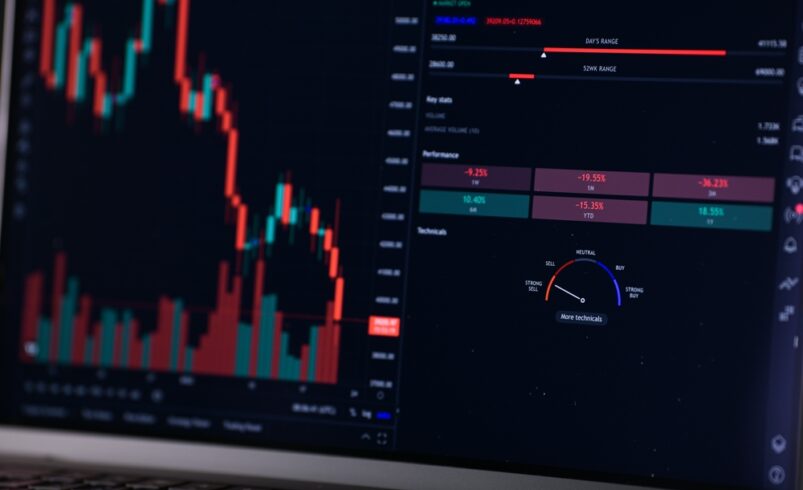Ethereum Developers Launch “Pump The Gas” Initiative: Here’s Why

Table of Contents
The “Pump the Gas” Initiative
To address the soaring transaction fees in the Ethereum blockchain, its core developers have kickstarted the “pump the gas” campaign to raise the platform’s gas limit from 30 million to 40 million. The brainchild of Eric Connor, a prominent Ethereum developer, and Mariano Conti, the former head of smart contracts at MakerDAO, the initiative aims to reduce layer-1 transaction costs on the network by up to 33%.
While introducing data blobs via the Dencun upgrade (EIP-4844) has successfully curbed layer-2 transaction costs, layer-1 fees have remained high. The developers believe that with the rise of gas limits and the leverage of innovations like data blobs, there will be enhanced scalability across layer-1 and layer-2 networks, enabling smoother and more cost-effective transactions.
Mixed Reactions
The gas limit dictates the maximum amount allowed per block, shaping the network’s capacity and efficiency. Since August 2021, Ethereum’s gas limit has remained at 30 million.
However, the need to accommodate increased transaction volumes has spurred calls for revision. Proponents argue that raising the gas limit will bolster the blockchain’s capacity to process transactions, resulting in faster confirmation times and reduced congestion.
Conversely, skeptics highlight various drawbacks, including heightened resource demands and susceptibility to network spam and security threats. Despite these concerns, the proposal has garnered widespread support within the Ethereum community, with enthusiasts expressing support for the initiative on social media platforms and blockchain forums.
Notable figures within the Ethereum ecosystem, including co-founder Vitalik Buterin, have advocated increasing the gas limit to 40 million since January. Nevertheless, a venture investor and Ethereum advocate, Evan Van Ness, expressed reservations about the proposed increase, citing potential implications for block size and network performance.
Similarly, Ethereum engineer Marius van der Wijden cautioned against overlooking the ramifications of expanding the gas limit, particularly on the blockchain’s accessibility and data processing speeds. The Ethereum network’s ongoing struggle with scalability has resulted in surging transaction fees during periods of high demand. Recall that gas fees skyrocketed to 174 gwei about two weeks ago, underscoring the urgency of addressing this network’s scalability issues.
Is The Ethereum Foundation Under Scrutiny?
According to reports, the Ethereum Foundation, a Swiss non-profit organization pivotal to the Ethereum ecosystem, has been approached by an unnamed “state authority” for undisclosed reasons. Coincidentally, its native cryptocurrency, ETH, faces potential reclassification by the US Securities and Exchange Commission (SEC).
The SEC has hinted that ETH could be classified as a security under the country’s securities laws. Accordingly, reports indicate that the SEC has initiated investigations into this possibility and sent subpoenas to US companies recently.
Will This Investigation Impact Spot ETH ETFs Approval?
Furthermore, the Ethereum Foundation’s GitHub repository reveals a commit dated February 26, 2024, acknowledging a “voluntary but confidential inquiry” from a state authority. Previously, the Ethereum Foundation maintained transparency regarding governmental interactions, with a website footer proclaiming its willingness to disclose any inquiries beyond regular business operations.
However, this disclosure was absent from the latest GitHub commit, alongside the website’s warrant canary, a measure used to indicate freedom from government subpoenas or requests. Legal experts suggest that Swiss regulators may collaborate with the SEC in their investigation into Ethereum.
With a looming deadline of May 23, 2024, for the SEC’s decision, any regulatory activity surrounding Ethereum will impact whether the US financial regulator will approve the spot ETH ETF approval. Meanwhile, the Ethereum Foundation has yet to issue any official statement.
Time Crypto Market offers content visibility for dozens of crypto enterprises, and you can be a part of our network! Reach out to us on our telegram chat for inquiries. The nature of cryptocurrencies is highly unpredictable; always perform your due diligence before any investment. Several articles on our site come from guest contributors or are commissioned pieces, not originating from Time Crypto Market's in-house writers. The perspectives shared in these articles might not necessarily align with those of Time Crypto Market. We do not assume responsibility for the veracity, caliber, promotions, offerings, or any other elements presented on our platform. Consult our comprehensive terms of service and disclaimer for more details.








